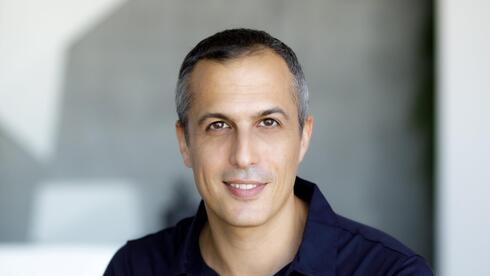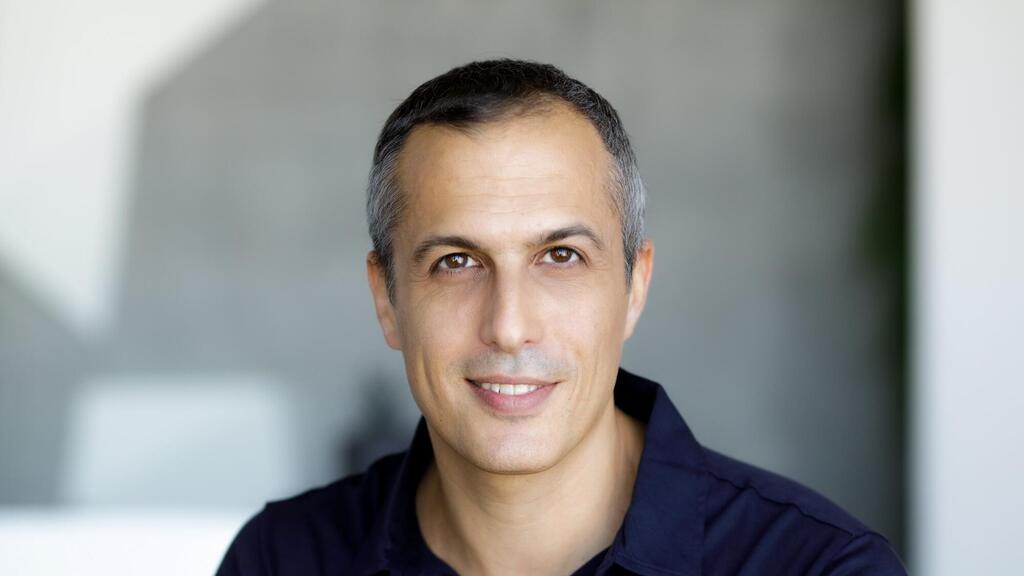
2025 VC Survey
Will new US leadership expand the Abraham Accords and boost Israeli tech?
Red Dot Capital Partners Managing Partner Yaniv Stern joined CTech to share predictions in the coming months - and whether the Middle East may return to previous levels of prosperity now Trump is returning to power.
“Everyone in the region can sense the winds of change even before the new administration takes office this month,” said Yaniv Stern Managing Partner at Red Dot Capital Partners. “The new US leadership has clearly indicated it will be pro-business and seek less regulation.”
As President Trump reassumes the presidency, many Israeli and American eyes are looking at how it will impact the Middle East. Notably, whether efforts towards an expanded peace treaty to help boost business and innovation. Stern joined CTech for its 2025 VC Survey to share predictions in the coming months.
“One likely development during this term is the expansion of the Abraham Accords in the region,” he continued. “This expansion will help deepen the existing collaboration around technology and innovation. Israeli entrepreneurs will experience this change through the opening of new markets as well as access to new sources of capital and strategic partnerships.”
You can catch the entire interview below.
Fund ID
Name of fund/funds: Red Dot Capital Partners
Total sum of the fund: $700M
Partners: Yaniv Stern, Barak Salomon, Danielle Ardon Baratz, Atad Peled, Yoram Oron
Notable/select portfolio companies (active): Coralogix, Armis, Quantum Machines, Travelier, Finout, Trigo, Ctera, EverC, Anecdotes, SupPlant, Stigg
Notable exits: Global-e, Armis, Paragon, Granulate, Celeno, Sealights, Perception Point
2024 is over. How can you summarize it in terms of the Israeli high-tech industry?
The Israeli tech ecosystem demonstrated remarkable resilience during a very challenging year. It faced the global tech cool-down more profoundly than other markets, accelerated by Israel’s challenging political and regional conditions. Yet, the Israeli tech ecosystem didn’t only perform strongly in 2024; it outperformed Asia and Europe, showcasing its continued competitiveness as a global innovation hub.
Despite all the challenges, the impressive number and quality of exits we have seen in the past 15 months is proof of the Israeli tech ecosystem’s strength and attractiveness. Our ecosystem enters 2025 focused, leaner, and better prepared for a different world than we were used to in the past decade.
Looking ahead to 2025 - What challenges and opportunities await the Israeli high-tech sector in the coming year, and how are you, as investors, preparing for them?
We expect 2025 to be a more stable year, in which the Israeli tech ecosystem will reiterate its ability to build innovative companies and deliver market leaders across multiple sectors. We saw a market correction in valuation, and at the same time, companies became very focused and capital-efficient.
We look forward to continuing to deploy our new fund and believe 2025 vintage investments will be outstanding. We expect that as the situation improves, the Israeli ecosystem will continue to experience an uplift in capital inflows and produce great companies.
How will new American leadership affect the global high-tech industry or economy? And where does this place Israel and its entrepreneurs?
Everyone in the region can sense the winds of change even before the new administration takes office later this month. The new US leadership has clearly indicated it will be pro-business and seek less regulation. One likely development during this term is the expansion of the Abraham Accords in the region. This expansion will help deepen the existing collaboration around technology and innovation. Israeli entrepreneurs will experience this change through the opening of new markets as well as access to new sources of capital and strategic partnerships.
What are the three most important things the Israeli government should do today to accelerate the high-tech engine in the coming year?
There is much that the government should and can do immediately. First, articulating a long-term vision centered on political and judicial stability is crucial. Second, several urgent pro-business actions demand attention:
- Commercial flights - do everything possible to encourage and enable international carriers to resume their flights to Israel. This has a profound impact on businesses and flow of capital when it is needed the most.
- Reduce friction for visitors - new visa requirements to visit Israel add another layer of friction. We need to make it easier to come here, not more difficult.
- Lower barriers for international investors and multinational companies to operate in Israel - both directly and indirectly. For example, the tax code is full of legacy decisions that are less relevant for the world we live in and that create additional challenges.
Are there new sectors you see as relevant? Are there any fields you anticipate will weaken significantly in the coming year?
Traditionally, strong sectors such as cyber, cloud infrastructure, and enterprise software will remain highly attractive. Additional sectors gaining momentum and investor interest include Quantum computing and Defense. Israel benefits from a globally renowned academic and research infrastructure in quantum computing, including a recently launched Israeli Quantum Computing Center (IQCC). We are witnessing a global uplift in investors' interest as this field takes significant strides forward. Defense technology benefits from Israeli founders' recent and very personal field experience, alongside a more traditional defense industry operating out of Israel for the past 50 years.
Another angle to consider is that Israel, which has been traditionally predominantly B2B focused, is also growing its B2C (and B2SMB) and B2G offerings. We already witnessed some large companies growing in this space, such as our own portfolio company, Travelier, in the travel space. This trend has become big enough that in the past few months, we have noticed new early-stage funds established to focus on B2C or B2G, and so we expect to meet incredible companies in our investment stage in the next year or two.
Is Israel missing out on the AI revolution in the global arms race? If not, what should the local industry focus on to join the global race?
Israel is not missing on the AI race but cannot afford to rest on any laurels. I expect some interesting AI companies to emerge from Israel in the next few years. I look forward to seeing two particular areas: companies that focus on responsible AI - for example, adherence to copyright laws, and companies that leverage AI to build an infrastructure more efficiently than their competitors. These companies will keep improving as the cost of leveraging AI continues to decrease.
Could the global IPO drought end in the coming year?
There are many Israeli companies in queue to IPO once the window opens. Market analysts are forecasting more IPOs in 2025, and whether it's this year or not depends on the US economy and more considerable sentiment on equity valuations.
From an investor's perspective: will the coming year be better for early-stage startups or more mature companies?
I see opportunities in the spectrum between early-stage and mature companies. In the past year, investors felt more comfortable with either early-stage companies that offered the potential for higher returns or mature companies that offered lesser risk. The area in between is where fewer investors engaged, capital was more limited, and valuations were better aligned with the commercial traction of the companies.
Did you raise fund money in 2024 for an existing fund or a new one? What are your expectations regarding this matter for 2025?
In 2024 we were actively raising capital for our third fund, and will continue expanding our LP base also in 2025.
How many investments did you make in 2024, and how does it compare to previous years?
We made four new investments in 2024, including Finout - a cloud cost management and optimization platform, and Stigg - a SaaS monetization platform. Two additional investments have not been announced yet: one in AI and the other in cybersecurity. We also led or participated in follow-up rounds in several existing portfolio companies.
Provide an example of an intriguing investment you made in 2024. What sets this company apart, or what is distinctive about its sector?
As the wave of AI adoption reshapes industries, businesses are exploring new AI capabilities and business models.
One of the most intriguing investments we made in 2024 was in Stigg, which provides a plug-and-play infrastructure for pricing and packaging. The company enables companies to experiment with and implement various go-to-market strategies swiftly. This eliminates the need for in-house development of complex monetization systems, allowing software companies to iterate and adapt rapidly. What sets Stigg apart is its innovative approach to helping companies monetize AI-driven offerings with agility and precision.
We believe that 2025 will be a breakout year for Stigg as more companies shift focus from merely deploying AI offerings to optimizing their monetization strategies. Stigg’s solution addresses this pivotal moment, positioning it as an essential tool for businesses navigating the evolving landscape of AI and SaaS.
Two notable companies that you think will thrive in 2025. These can be from your portfolio or not.
Company Name: Quantum Machines
Sector + description of the product/service: Quantum computing. Quantum Machines develop solutions to control and operate quantum computers, enabling developers to efficiently execute complex algorithms and scale quantum computing systems
Investment amount + total: The company raised $107M
Founding Year: 2018
Reasoning why this is their year: Quantum Machines is at the nexus of innovation and commercialization in quantum computing. As the quantum computing market emerges and matures and as quantum computers grow in number of physical qubits, the need for efficient control systems that can coordinate across thousands of qubits, like those provided by Quantum Machines, becomes essential. Its products are market leaders and we expect it to demonstrate phenomenal growth over the next couple of years.
Company Name: Finout
Sector + description of the product/service: FinOps/Cloud Cost Management. Finout is an enterprise-grade Finops platform designed for R&D, FinOps, and Finance teams to tackle their mission to manage & reduce their cloud spend. With powerful tools for real-time visibility, cost allocation, and waste detection, Finout transforms cloud spending into a strategic advantage, empowering teams to collaborate seamlessly and drive efficiency.
Investment amount + total: The company raised $45M
Founding Year: 2021
Reasoning why this is their year: As cloud adoption accelerates and environments grow increasingly complex, traditional tools are struggling to manage the surge in cloud costs - particularly with the anticipated growth in AI workloads. After nearly quintupling its revenue in 2024 and onboarding high-profile global enterprises, Finout has demonstrated its ability to outperform legacy and next-gen FinOps solutions. With strong tailwinds, a customer-obsessed team and the resources to execute, Finout is primed to dominate the FinOps space.













